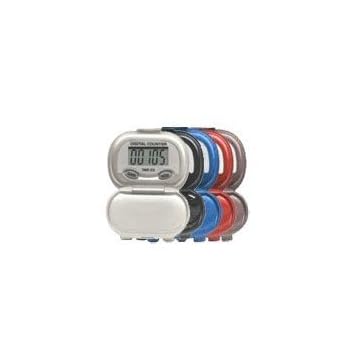If there was a killer out there on the loose, hiding in your own neighborhood and killing more people than almost anyone or anything else out there, then you would want to know about him. You would want to know where he likes to attack his victims, and how he attacks. You would do everything in your power to avoid him and stay safe. Well, there is such a killer out on the loose, and his name is Cancer. Read this, so you can stay safe.
There are so many sources out in the world telling us about cancer. You hear and read different statistics on the news almost daily. You hear your family or friends talking about it, and many people don't have all the facts on cancer straight. I decided that you need to know the facts. I am taking these facts on cancer out of my nursing textbook that was published in 2011. You can be certain that these facts are all accurate. Prepare yourself to learn some very interesting and scary facts about cancer...
- In the united States, cancer is the second most common cause of death.
- About 1,529,560 new cancer cases are expected to be diagnosed this year.
- One in every four deaths in the United States is caused by cancer
- More than 1500 people die of dancer each day
- Lung cancer remains the leading cause of cancer deaths in both men and women (28% of all cancer deaths)
- Breast cancer is the most frequently diagnosed cancer in women (207,090 new cases in 2010)
- Although breast cancer occurs more commonly in Caucasian women than in African american women, the survival rate is 90% for Caucasian women compared to only 77% of African Americans
- Prostate cancer is the most frequently occurring cancer in men (217,730 new cases during 2010)
- Melanoma (the most common type of skin cancer) occurs mainly among Whites (the incidence rate is more than 10 times higher than African Americans)
- African Americans have the highest mortality rate for all cancers and major cancers among all ethnic groups
- It is estimated that 5% of all cancers have a strong hereditary component
- A patient with a family history of lung cancer should be counseled to avoid smoking, to avoid areas where smoking is allowed, and to avoid working in an occupation that may expose the patient to inhaled carcinogens
- Cancer is a disease associated with aging; about 78% of cancer diagnoses occur after age 55
- The incidence of bladder cancer is about 4 times higher in men than in women
- Thyroid cancer occurs more commonly among females
- The poor are at higher risk for cancer than the population in general. Lack of health insurance and inadequate access to health care, especially preventive screening and counseling, may be major factors
- Dietary factors appear to be one of the most important factors for cancer risk. A diet that is high in red meat and saturated fat appears to increase risk. Vegetables, fruits, fiber, folate, and calcium may be protective
- Overweight and obesity contribute to 14% to 20% of all cancer related mortality in the United States
- Sun-related skin cancers are now considered to be a problem for all people, regardless of skin color, but people of northern European extraction with very fair skin, blue or green eyes, and light-colored hair are most vulnerable. elderly people with decreased pigment are also more at risk, even those with darker skin
MAKE SURE TO FOLLOW THESE RECOMMENDATIONS!!! (again, also taken out of my nursing text just barely published this year!!!)
- Yearly mammograms are recommended starting at age 40. Every 3 years for women in their 20's and 30's. Women should know how their breasts normally feel and report any breast changes promptly to their healthcare providers.
- Regarding the Cervix/Uterus: screening should begin approximately three years after a woman begins having vaginal intercourse, but no later than 21 years of age. Screening should be done every year with regular Pap tests or every two years using liquid-based tests.
- At or after age 30, women who have had three normal test results in a row may get screened every 2 to 3 years (unless your doctor recommends otherwsise due to certain risk factors)
- Beginning at age 50, men and women should follow these examination schedules:
- A guaiac-based fecal occult blood test (to check for blood in the feces) every year
- A colonoscopy every 10 years
- Men should have a prostate-specific antigen (PSA) test and the digital rectal examination (DRE) annually, beginning at age 50, to men who have a life expectancy of at least 10 years. Men with a higher risk (hereditary, African American) should begin testing at age 45.
For everyone in general, here are 7 warning signs of cancer given by the American Cancer Society that everyone should be on the lookout for:
CAUTION
Change in bowel or bladder habits
A sore that does not heal
Unusual bleeding or discharge
Thickening or lump in breast or elsewhere
Indigestion or difficulty swallowing
Obvious change in wart or mole
Nagging cough or hoarseness
*If you have a warning signal, see your doctor!










